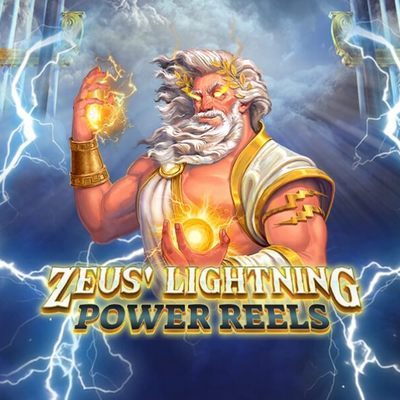Zumospin in Nederland
ZumoSpin Casino is een spannende toevoeging aan de online gokmarkt die in december 2022 zijn debuut maakte. Het biedt spelers van over de hele wereld een gevarieerde collectie van meer dan 5.000 spellen, waarvan er veel gratis beschikbaar zijn.
| Officiële website | catecosta.com |
| Jaar van uitgave | 2022 |
| Aantal wedstrijden | 5000+ |
| Welkomstbonus | Tot €300 + 250 gratis spins |
| Softwareleveranciers | BGaming, Booming Games, BetSoft, Playson, Pragmatic Play, 4ThePlayer, Amatic Industries, Bad Dingo, KA Gaming, Mascot, Wazdan, 3 Oaks Gaming |
| Compatibiliteit met mobiele apparaten | Android, iPhone, iPad, Windows |
Deze omvatten premium slotmachines, crashgames, evenals virtuele en live tafelspellen geproduceerd door providers zoals Evolution, Pragmatic Play, Red Tiger, Thunderkick en nog veel meer.
Licentie
Zumospin Casino wordt beheerd door MANILA MARKETING. N.V., een bedrijf dat geregistreerd is op Curaçao en opereert binnen het juridische systeem van Curaçao, maar, verrassend genoeg, niet gereguleerd is. Het moederbedrijf en, tot op zekere hoogte, het casino zelf worden gereguleerd door de Kanawake Gaming Commission.
Hottest Casino Bonussen en Promoties: Verhoog je Winsten
Zumospin biedt spelers een aantal bonussen. Je kunt profiteren van een welkomstpakket dat bescheidener was: de bonusgerelateerde voorwaarden waren niet slecht, maar nauwelijks indrukwekkend. Terugkerende spelers zullen alleen genoegen moeten nemen met een Cashback-aanbieding – en met de kans om deel te nemen aan verschillende Toernooien en Drops, of om verschillende missies te voltooien en prijzen te winnen.
| Bonus | Minimale aanbetaling | Maximale bonus | Inzetvereisten | Uitbetalingslimiet |
| Eerste stortingsbonus | € 15 | 100% tot € 100 + 250 spins | 35x | – |
| Tweede stortingsbonus | € 15 | 55% tot € 100 | 35x | – |
| Derde stortingsbonus | € 15 | 100% tot € 100 | 35x | – |
| Geld terug | – | 25% | – | – |
| Dagelijks wiel | € 15 | Niet gespecificeerd | – | – |
Met het welkomstpakket van het casino kunnen spelers bonussen krijgen op hun eerste drie stortingen van € 15 of meer. De inzetvereisten waaraan u moet voldoen voordat u kunt opnemen, zijn vrij standaard: 35 keer de storting plus de bonus. Houd er echter rekening mee dat u slechts 7 dagen de tijd heeft om ze te ontmoeten.
- Eerste stortingsbonus – Je ontvangt een bonus van 100% tot € 100 en 250 gratis spins op Aztec Magic, Aztec Magic Deluxe, Johnny Cash, Platinum Lightning of Platinum Lightning Deluxe van BGaming. Gratis spins worden vijf dagen op rij in batches van 50 bijgeschreven. Het maximale aantal winsten uit de gratis spins is € 50.
- Tweede stortingsbonus – Dit is een 55% tot € 100.
- Derde stortingsbonus – De laatste bonus van het welkomstpakket geeft u een opwaardering van 100% tot € 100.
Terugkerende spelers kunnen tot 25% van hun dagelijkse verliezen terugkrijgen door de Cashback- aanbieding van het casino te activeren. Dit klinkt best goed, maar er is geen aanvullende informatie verstrekt.
Beste Casino Aanbieders en Spellen: Geniet van Verscheidenheid en Kwaliteit
Het casino bezit een prachtige collectie van meer dan 5.000 premium spellen, waar je honderden gokkasttitels en verschillende crashgames zoals Spaceman, Zeppelin, Ball & Ball, Jet X, Quantum X en nog veel meer kunt vinden.
Tafelspellen en kaartspelers zullen ook niet teleurgesteld zijn, want ze kunnen kiezen uit een breed aanbod zoals klassiek of open blackjack, Texas Hold’em, Hi-Lo Switch, Europees, Frans of Amerikaans roulette, craps, Sic-Bo, Aces & Faces, baccarat, Amerikaans poker, Andar Bahar en nog veel meer.
De meeste casinoklassiekers zijn beschikbaar in virtueel en live formaat. Daarnaast kun je ook inzetten op spelshows zoals Monopoly Big Baller, Sweet Bonanza Candyland, Cash or Crash, Extra Chilli Epic Spins en andere in de live dealer lobby.
Bovendien kun je inzetten op krasloten of virtuele sporten zoals hockey, paardenrennen, voetbal, hanengevechten en nog veel meer.
Spelaanbieders
Voor zijn portfolio heeft ZumoSpin casino leveranciers van over de hele wereld verzameld, waaronder grote namen als Betsoft, Evolution, Pragmatic Play, Red Tiger, Thunderkick en Yggdrasil. Er zijn ook spellen van kleinere maar competitieve studio’s zoals Endorphina, Gaming Corps, Gamzix, Turbo Games en anderen.
Game Casino on the Go: Top mobiele versie voor uw gemak
ZumoSpin breidt haar beschikbaarheid uit met een speciale mobiele app die je kunt downloaden van hun website.
Deze functie is vooral handig voor spelers die liever onderweg spelen.
De casino website is ontworpen met mobiele compatibiliteit in het achterhoofd, waardoor een naadloze ervaring op verschillende apparaten wordt gegarandeerd. Gebruikers hebben toegang tot het platform vanaf smartphones en tablets zonder extra software te downloaden.
De mobiele versie heeft dezelfde interface als de desktopversie en biedt meer dan 5.000 spellen. Deze consistentie zorgt ervoor dat spelers kunnen genieten van een vertrouwde en intuïtieve navigatie, ongeacht het apparaat.
Veilige betaalmethoden: uw comfort en veiligheid zijn prioriteit
ZumoSpin ondersteunt een breed scala aan betaalmethodes met verschillende cryptocurrencies en enkele van de meest populaire en handige fiatmethodes. Afhankelijk van het land waar je bent ingelogd, kun je kiezen om te storten met Visa, Mastercard, Revolut, Jeton, MiFinity, CashLib, ApplePay, GooglePay, Bitcoin, Tether, Ethereum, Dogecoin of Litecoin. Waar mogelijk worden opnames verwerkt met dezelfde methode die is gebruikt om de storting te doen, anders worden ze uitbetaald via een bankoverschrijving.
De operator heeft redelijke minimale transactielimieten ingesteld van €15 voor stortingen en €50 voor opnames. De maximale opnamebedragen zijn €3.000 per dag, €15.000 per week en €30.000 per maand, wat wij meer dan gunstig vinden.
De vereiste stortingsomzet voor uitbetaling is volledig eerlijk omdat het maar één keer wordt gedaan en het niet naleven van dit deel van de anti-witwasregels kost je een vergoeding.
FAQ
Wanneer werd het casino gelanceerd?
Zumospin Casino ging eind 2023 van start.
Is het mogelijk om met een VPN in het casino te spelen?
Nee, spelen met een VPN is strikt tegen de servicevoorwaarden van ons casino.
Hoeveel slotmachines zijn er beschikbaar in het casino?
De site adverteert met meer dan 5.000 spellen, maar het kan zijn dat je toegang hebt tot minder, afhankelijk van waar je woont.
Kan ik jackpots winnen door te spelen op gokkasten in het casino?
Ja, er is een aparte categorie in het casino gedeelte speciaal gewijd aan jackpotspellen.
Is het de moeite waard om een welkomstbonus van het casino te claimen?
Het hangt ervan af op welke spellen je het wilt gebruiken. Hoewel de bonus vrij klein is, wordt hij geleverd met een groot aantal gratis spins, dus het kan de moeite waard zijn om er gebruik van te maken als je geïnteresseerd bent in een van de spellen waarbij je de spins kunt gebruiken, zoals Gates of Olympus.







